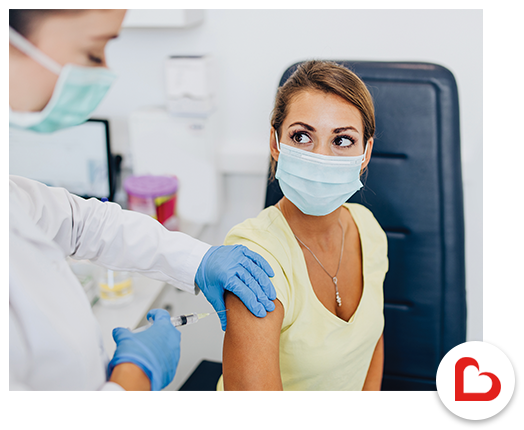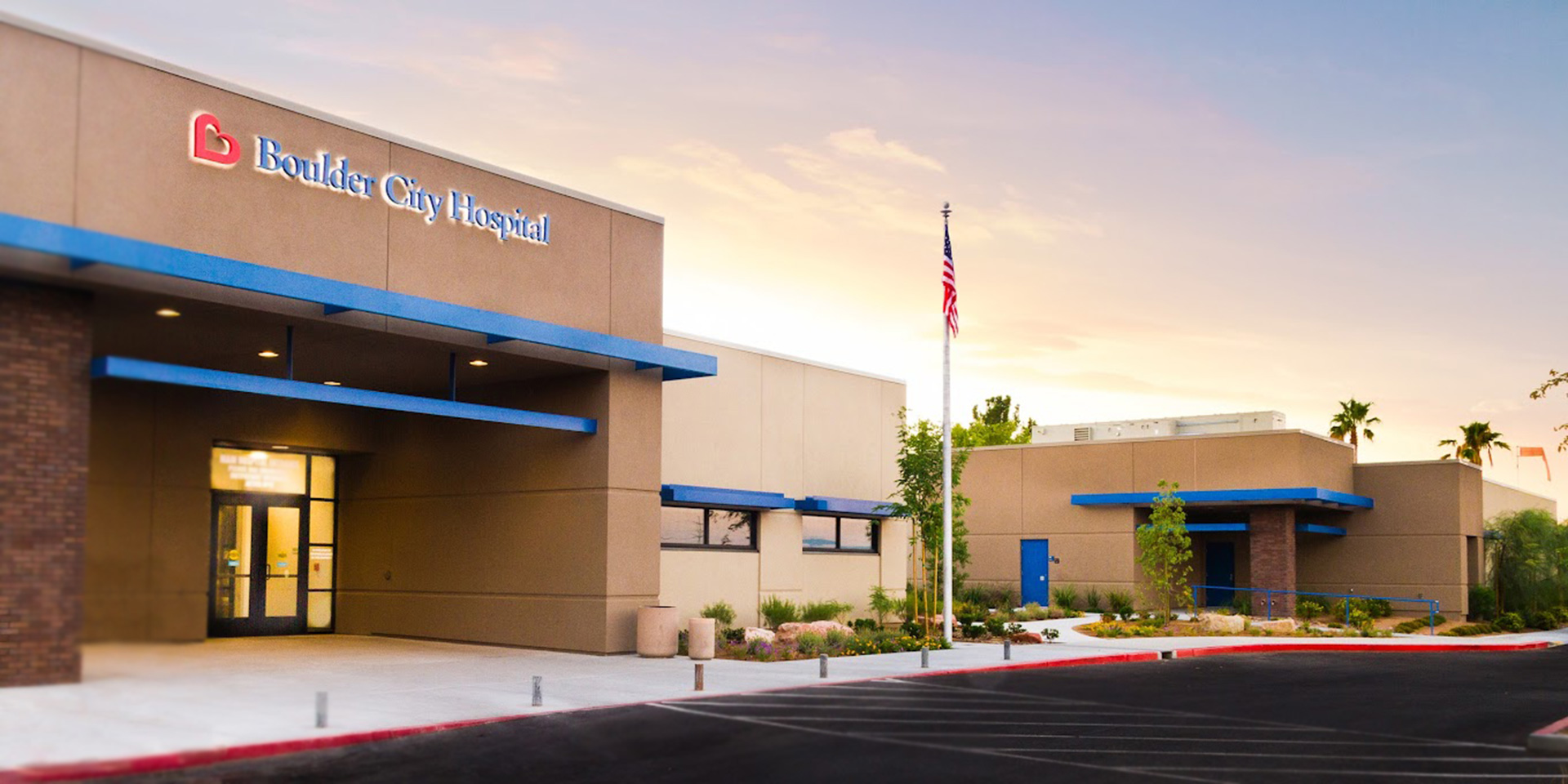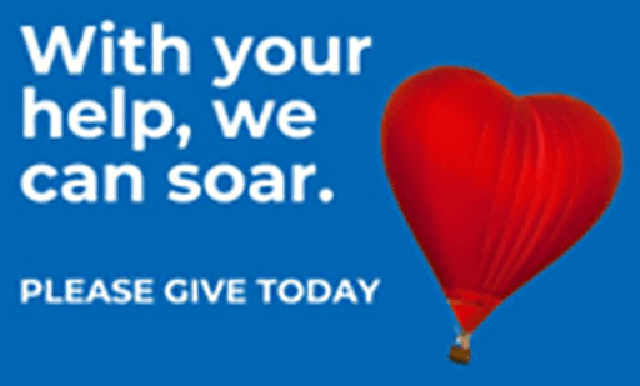COVID-19: Important Info
Boulder City Hospital proudly administers the COVID-19 Moderna vaccine which offers protection for individuals, family members, co-workers, and community.
Boulder City Hospital has been at the forefront in vaccinating our community working with the City of Boulder City, Boulder City Fire Department, the Southern Nevada Health District, and Clark County.
We offer vaccinations by appointment, which can be booked by calling 702.698.8343. We are here for the future health of our community offering, quick, safe and effective protection against COVID-19.
Based on evidence from clinical trials, the Moderna vaccine was 94.1% effective at preventing serious COVID-19 illness in people who received two doses. Learn more.

COVID-19 Vaccine Booster Shot
Boulder City Hospital is committed to protecting all staff, visitors and patients from COVID-19
HHS announced a plan to begin offering COVID-19 vaccine booster shots this fall. CDC’s independent advisory committee, the Advisory Committee on Immunization Practices, will continue to meet and discuss data on the evolution of the pandemic and the use of COVID-19 vaccines. ACIP will make further recommendations on the use of boosters for the public after a thorough review of the evidence.
Not immediately. The goal is for people to start receiving a COVID-19 booster shot beginning in the fall, with individuals being eligible starting 8 months after they received their second dose of an mRNA vaccine (either Pfizer-BioNTech or Moderna). This is subject to authorization by the U.S. Food and Drug Administration and recommendation by CDC’s Advisory Committee on Immunization Practices (ACIP). FDA is conducting an independent evaluation to determine the safety and effectiveness of a booster dose of the mRNA vaccines. ACIP will decide whether to issue a booster dose recommendation based on a thorough review of the evidence.
Emergency Use Instructions (EUI) Fact Sheet for Recipients and Caregivers:
Pfizer-BioNTech COVID-19 vaccine for Primary, Additional, and/or Booster Doses
This Fact Sheet describes Emergency Use Instructions that have been issued by the Centers for Disease Control and Prevention (CDC) to provide information about the primary, additional, and booster doses of the COVID-19 vaccine by Pfizer-BioNTech, including longer interval between primary doses of the COVID-19 vaccine by Pfizer-BioNTech, use in certain individuals who received primary vaccination with certain COVID-19 vaccines not FDA-authorized or approved for such use and in immunocompromised individuals who received one primary dose of the Janssen COVID-19 Vaccine.
If you are 12 years and older, you may receive the second dose of the COVID-19 vaccine by Pfizer-BioNTech 3–8 weeks after the first dose. If you are 12 years and older and received primary vaccination with certain COVID-19 vaccines not authorized or approved by the Food and Drug Administration (FDA), you may be eligible for the COVID-19 vaccine by Pfizer-BioNTech as a primary dose, additional dose, and/or a booster dose. For example, if you were vaccinated outside the United States or from clinical trial participation (and received vaccines that have not received FDA approval or authorization such as the AstraZeneca COVID-19 vaccine, the Novavax COVID-19 vaccine, or the Sinopharm COVID-19 vaccine), you may be eligible to receive a primary dose, additional dose, and/or a booster dose. If you are 18 years and older with an immunocompromising condition and you received Janssen COVID-19 Vaccine as your first dose, you may also be eligible to receive an additional dose of the COVID-19 vaccine by Pfizer-BioNTech. If you are 12 years and older with a moderately or severely immunocompromising condition and received certain therapies (hematopoietic cell transplant (HCT) or CAR-T-cell therapy) and received dose(s) of COVID-19 vaccine prior to or during treatment, you may be eligible to be revaccinated with the COVID-19 vaccine by Pfizer-BioNTech.
mRNA vaccines are preferred for persons with moderate or severe immune compromise. If you are 18 years and older and you are receiving vaccination for uses provided under EUI, you have a choice of receiving the COVID-19 vaccine by either Pfizer-BioNTech or Moderna (see the Moderna EUI Fact Sheet for Recipients and Caregivers). Persons 12–17 years should only receive the COVID-19 vaccine by Pfizer-BioNTech.
What are Emergency Use Instructions (EUI)?
EUI are issued by CDC to provide information about emergency use of FDA-approved (licensed) medical products that may not be included in or differ in some way from the information provided in the FDA-approved labeling (package insert). EUI consist of fact sheets for healthcare providers and recipients.
Why is CDC issuing EUI for the COVID-19 vaccine by Pfizer-BioNTech?
The COVID-19 vaccine by Pfizer-BioNTech is an FDA-approved COVID-19 vaccine (brand name Comirnaty, mRNA) to prevent COVID-19 in persons 16 years and older. CDC is issuing EUI to provide information about this vaccine for the below uses. The COVID-19 vaccine by Moderna can also be used under EUI for similar uses in those 18 years and older as an alternative mRNA COVID-19 vaccine (see the Moderna EUI Fact Sheet for Recipients), and the same or similar recommendations in this EUI also apply to the use of the COVID-19 vaccine by Moderna under EUI. The uses of the COVID-19 vaccine by Pfizer-BioNTech permitted under EUI are:
- Persons 12 years and older as a second primary dose 3–8 weeks after the first primary dose, especially those at higher risk of myocarditis associated with mRNA COVID-19 vaccines.
- Persons 12 years and older as an additional (third) primary dose in those with certain immunocompromising conditions, a primary dose in those with incomplete primary dose series, and/or a booster dose after receiving certain non-FDA authorized or approved COVID-19 vaccines Pfizer-BioNTech COVID-19 Vaccine EUI Recipient Fact Sheet, version 2/22/2022; originally CDC-issued 11/17/2021; prior revisions on 12/9/2021, 1/7/2022, 2/11/2022 Page 2 of 4
(for example, certain vaccines available outside of the United States or vaccines used in clinical trials). • Persons 18 years and older with certain immunocompromising conditions as an additional dose after receiving primary vaccination with the Janssen COVID-19 Vaccine.
- Persons 12 years and older with a moderately or severely immunocompromising condition who received dose(s) of COVID-19 vaccine prior to or during treatment with certain therapies (HCT or CAR-T-cell therapy) should be revaccinated with the COVID-19 vaccine by Pfizer-BioNTech, regardless of which vaccine was received initially.
Read more about Emergency Use Instructions (EUI) Fact Sheet for Recipients and Caregivers: Pfizer-BioNTech COVID-19 vaccine for Primary, Additional, and/or Booster Doses. Download here.
For more information: https://www.fda.gov/emergency-preparedness-and-response/counterterrorism-and-emerging-threats/coronavirus-disease-2019-covid-19
If the FDA authorizes and ACIP recommends a booster dose, people who were first to receive a COVID-19 vaccination when they became available in early 2021 (e.g., those who are most at risk) are likely to be the first people eligible for a booster. This includes healthcare providers, residents of long-term care facilities, and other older adults.
The COVID-19 vaccines authorized in the United States continue to be highly effective in reducing risk of severe disease, hospitalization, and death, even against the widely circulating Delta variant. However, COVID-19 constantly evolves. Experts are looking at all available data to understand how well the vaccines are working, including how new variants, like Delta, affect vaccine effectiveness. If FDA authorizes and ACIP recommends it, the goal is for people to start receiving a COVID-19 booster shot this fall.
No, there aren’t enough data currently to support getting an mRNA vaccine dose (either Pfizer-BioNTech or Moderna) if someone has previously gotten a J&J/Janssen vaccine. People who got the J&J/Janssen vaccine will likely need a booster dose of the J&J/Janssen vaccine, and more data are expected in the coming weeks. With those data in hand, CDC will keep the public informed with a timely plan for J&J/Janssen booster shots.
It is likely that people who received a J&J COVID-19 vaccine will need a booster dose. Because the J&J/Janssen vaccine wasn’t given in the United States until 70 days after the first mRNA vaccine doses (Pfizer-BioNTech and Moderna), the data needed to make this decision aren’t available yet. These data are expected in the coming weeks. With those data in hand, CDC will keep the public informed with a timely plan for J&J/Janssen booster shots.
No. COVID-19 vaccines are working very well to prevent severe illness, hospitalization, and death, even against the widely circulating Delta variant. However, with the Delta variant, public health experts are starting to see reduced protection against mild and moderate disease. For that reason, the U.S. Department of Health and Human Services (HHS) is planning for a booster shot so vaccinated people maintain protection over the coming months.
Sometimes people who are moderately to severely immunocompromised do not build enough (or any) protection when they first get a vaccination. When this happens, getting another dose of the vaccine can sometimes help them build more protection against the disease. This appears to be the case for some immunocompromised people and COVID-19 vaccines. CDC recommends moderately to severely immunocompromised people consider receiving an additional (third) dose of an mRNA COVID-19 vaccine (Pfizer-BioNTech or Moderna) at least 28 days after the completion of the initial 2-dose mRNA COVID-19 vaccine series.
In contrast, a “booster dose” refers to another dose of a vaccine that is given to someone who built enough protection after vaccination, but then that protection decreased over time (this is called waning immunity). HHS has developed a plan to begin offering COVID-19 booster shots to people this fall. Implementation of the plan is subject to FDA’s authorization and ACIP’s recommendation.
From: Centers for Disease Control (CDC)
Source: https://www.cdc.gov/coronavirus/2019-ncov/vaccines/stay-up-to-date.html


